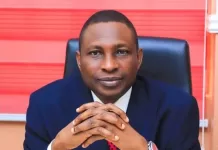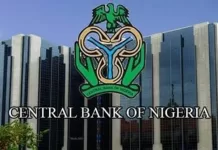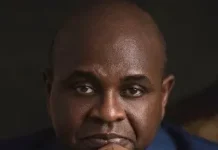After passing the ball around and playing the blame game, Banks and Telcos have chosen to resolve the differences in a matured way.
It is an open secret that money causes problems between friends and creates enmity between business partners.

Now, the Nigerian Communications Commission (NCC) and the Central Bank of Nigeria (CBN), have successfully resolved a lingering rift.
The rift is between telecommunications operators and the banks over ₦120 billion Unstructured Supplementary Service Data (USSD) debt.
It was at the Telecom Executives and Regulators Forum (TERF) held in Lagos on Thursday, that the Executive Vice Chairman of the Nigerian Communications Commission announced this development.
Addressing participants, the Executive Vice Chairman (EVC) of the Nigerian Communications Commission (NCC) Prof. Umar Danbatta, said that the lingering issue of ₦120 billion debt owed by banks for the Unstructured Supplementary Service Data (USSD), provided by telecom operators has now been resolved.
With this, he said the banks, after the intervention of the Acting Governor of the Central Bank of Nigeria (CBN), Folashodun Shonubi, have agreed to clear the accumulated debt and continue to pay for the USSD service going forward under the corporate billing term.
According to the EVC, the issue was resolved at a recent meeting between the acting CBN Governor, the NCC, the telecom operators and the banks.
The resolution, he said, was achieved based on the realisation that financial inclusion cannot be achieved without telecom services.
Corporate Billing
Explaining the origin of the problem, Danbatta said the banks’ insistence on end-user billing as opposed to corporate billing led to the debt accumulation.
USSD service is being provided to the banks, who in turn provide the service to their customers.
The question was who should be paying for the service.
“They wanted end-user billing, but we said the service is being provided to the banks, not to their customers.
“The banks charge their customers for the service, and they are to pay the telcos in the form of corporate billing, which is neat.
“Then along the way, there was a misunderstanding and the debt kept piling until it reached a humongous amount of over N100 billion.
“Even at that, the service was still being provided to customers by the banks using the telecom infrastructure and the telcos were being paid nothing.
“This was despite the intervention of the immediate past Minister,” Danbatta explained.
Digital Financial Inclusion
In the resolution, it was captured that the situation had remained the same until recently when the Acting CBN Governor intervened.
Furthermore, the EVC said the apex bank boss acknowledged that without the USSD service, there would be no digital financial inclusion and the penetration of the inclusion would be nowhere near where it is now.
“Digital financial inclusion index or penetration is currently about 70% because it is telco driven.
“And as such, there shouldn’t be any problem paying for the service. No service is free.
“Pay the telcos, that’s all we ask, okay! And as we’re saying, now, pay them for the debt, the accumulated debt, and then pay them for the service they are rendering as we speak.
“At a meeting between the acting CBN governor, the NCC, the telcos and the banks, it was acknowledged that the debt exists, that going forward, the service has to be paid for by the banks through corporate billing.
“It is an important development for the telecoms industry that we have found an amicable resolution to the problem because we’re all serving the same government.
“We do not want to disrupt financial services in the country.
“We want to see the financial inclusion penetration to even go higher. Also, we want it to be ubiquitous, but we cannot do this without settling the legacy debt, as well as paying for the service that is being provided,” he said.
The telecom operators under the aegis of the Association of Licensed Telecommunications Operators of Nigeria (ALTON) had recently threatened to disconnect the banks from the USSD service.
This was after several interventions of the immediate past Minister of Communications and Digital Economy, Isa Pantami, had failed.






